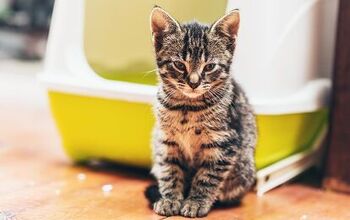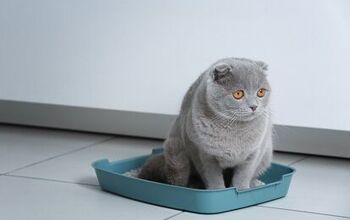Why Is My Cat Avoiding the Litter Box?

Cats are known for their strong instinct for cleanliness, and most will use a litter box without issue. So, when your feline companion suddenly starts avoiding it, this can be a sign of an underlying problem. The reasons can range from medical conditions to environmental stressors, and identifying the cause is crucial for resolving the issue. Here are some of the most common reasons why your cat is avoiding the litter box.
#1 Medical Issues
One of the first things to consider is a medical condition. Cats experiencing pain or discomfort while urinating may associate the litter box with that discomfort and avoid it altogether. Common health issues that can lead to litter box avoidance include:
- Urinary Tract Infections (UTIs) – Can cause pain, frequent urination, and accidents outside the box.
- Feline Lower Urinary Tract Disease (FLUTD) – Often leads to straining, frequent attempts to urinate, and licking of the genital area.
- Bladder Stones or Kidney Disease – May cause increased urination or discomfort.
- Diabetes – Can result in excessive thirst and urination, sometimes overwhelming the litter box.
If your cat is exhibiting signs of discomfort, straining, or unusual urination patterns, a vet visit is essential to rule out these conditions.
#2 Hygiene and Litter Box Maintenance
Cats are fastidious creatures, and a dirty litter box can be a major deterrent. If the box isn’t cleaned regularly, your cat may seek alternative places to relieve itself. To maintain a clean and inviting space:
- Scoop the litter box daily to remove waste.
- Perform a full clean weekly, replacing old litter with fresh, unscented litter.
- Use an appropriately sized litter box—cats generally prefer a box at least 1.5 times their body length.
- Place the box in a quiet, low-traffic area where your cat feels safe.
#3 Litter Type and Preferences
Some cats are particular about the type of litter they use. If you’ve recently switched brands or litter types, your cat may dislike the texture, scent, or clumping ability. If litter aversion is suspected:
- Revert to the previous litter if your cat suddenly stops using the box.
- Offer multiple litter types in separate boxes to determine your cat’s preference.
- Avoid strongly scented litter, as many cats prefer unscented options.
#4 Stress and Environmental Changes
Cats are sensitive to changes in their environment, and stress can significantly impact litter box behavior. Common stressors include:
- Moving to a new home
- The introduction of a new pet or family member
- Changes in household dynamics
- Loud noises or disruptions near the litter box
To minimize stress-related litter box issues:
- Provide a quiet, secure space for your cat to retreat to.
- Use calming pheromone diffusers to create a soothing environment.
- Maintain a consistent routine to provide stability and comfort.
#5 Multi-Cat Household Considerations
In multi-cat homes, territorial behavior can lead to litter box avoidance. Some cats may feel uneasy sharing, leading them to seek alternative spots. To prevent territorial disputes:
- Follow the “one box per cat, plus one extra” rule to ensure each cat has access to a clean box.
- Space litter boxes in different locations to reduce competition.
- Monitor for bullying or resource-guarding behaviors that may be deterring one cat from using the box.
Addressing the Issue
If your cat is avoiding the litter box, identifying and addressing the root cause is essential. Start by ruling out medical conditions with a vet visit, then assess cleanliness, litter type, stress levels, and household dynamics. With careful observation and appropriate adjustments, most litter box issues can be resolved, ensuring a happy and healthy environment for your feline friend.

A proud mama to seven dogs and ten cats, Angela spends her days writing for her fellow pet parents and pampering her furballs, all of whom are rescues. When she's not gushing over her adorable cats or playing with her dogs, she can be found curled up with a good fantasy book.
More by Angela Vuckovic
























